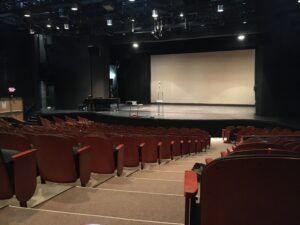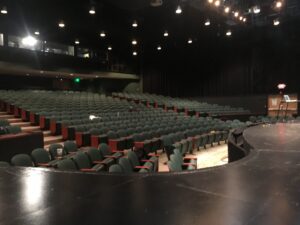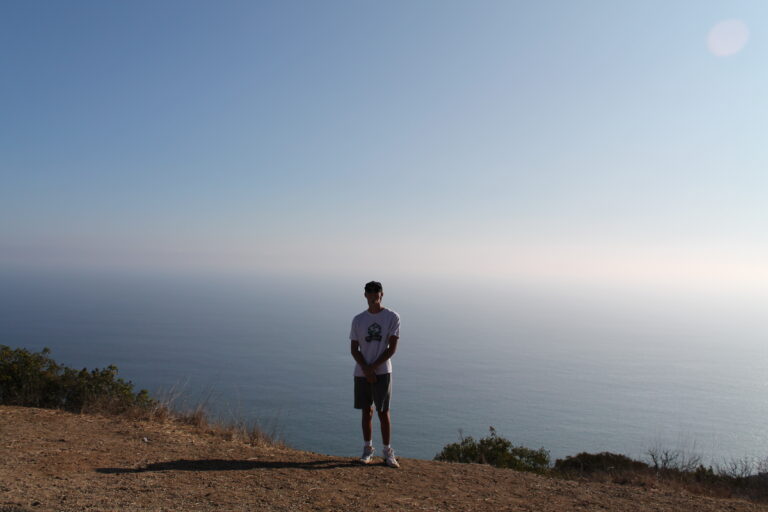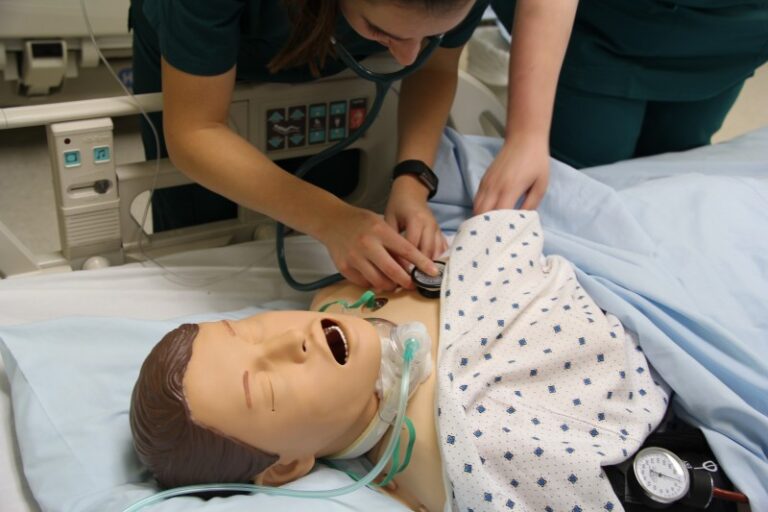Theatre students staying connected

As the semester rolls on with students and faculty staring into a screen, theater students especially are missing the human connection that comes with in-person classes.
While everyone is feeling the stress of online classes and the sadness of not being able to do hands-on projects, all theater productions have been put on hold for the foreseeable future. This essentially prevents theater majors from doing exactly what they came to college for.
It’s a stereotype that theater students are a tightknit community, but why do people think that? Department head Harry McEnerny put it very simply.
“We respect each other, and I think that’s where it starts,” he said.
Every semester, theater students put on a full-length show combining all the different majors in the theater program. They work three hours a day – sometimes more in class – for months to produce a show that applies what they do in the classroom to an actual production.
They trust one another to do their job on time and correctly. If someone doesn’t know how to do something, there is no shame in asking. It’s a tight-knit family all truly here to help each other, which brings them closer, students say.
When not actively working, theater students often hang out in the green room. Having a common space allows them to meet students that are not in their classes. It is a space to relax and get to know each other.
Because of the nature of their classes and the closeness that has been established, theater students say it’s hard to be apart with online learning. The closeness they have created is unique to their program.
To stay together as a group, the theater professors collectively decided to have synchronous classes. McEnerny was the last of the four to get on board with the idea, he said.
The theater department usually has a meeting every month to talk about various things. Since being online, McEnerny has turned it into a weekly meeting.
These meetings are not strictly business. They’ve had conversations about catching bats, nativity scenes and how old is too old to be trick or treating. These meetings are mostly a way to see theater students outside of those in their classes and welcome in new students.
Michael Newman, a first year acting and directing major, was excited to join the program after the first department meeting.
“I like that they’re doing the little 12:30 on Fridays, the little meetings. I missed it last week. It’s nice of them to do that,” he said.
“Going to another [theater department] I thought would be kinda scary, but it’s really not that scary because people are just nice,” Newman added.

Maya Kraus, coordinator of the dance program, has also been hosting hang out sessions that have no relation to class or school. She has been doing this since students were sent home in March to keep people talking to each other.
Alpha Psi Omega, the theater honors society, sends out monthly newsletters filled with resources and activities for theater students.
Cydney Krone, a senior musical theater major, has tried keeping in touch with not only theater students, but anyone that wants to talk. She lives in California, a three-hour time difference, but is still committed to keeping people connected. Krone commented on how Alpha Psi Omega is trying to stay in touch with students, without using Zoom too much.
“We’ve all said we’re zoomed out, so we don’t want to do overkill on the Zoom for everybody. We’re trying to find ways to be like, we’re here, we’re working for you, we care,” she said.
Students and teachers are realizing that using Zoom for every interaction is creating Zoom fatigue. There’s only a certain amount of virtual communication anyone can take. Virtual classes lack side conversations to help clarify or casually talk to your neighbor. It takes away the camaraderie between students. Teachers and students alike can’t match each other’s energies because of the lack of visual and verbal cues. There is no give and take on video chats. McEnerny commented on the lack of reciprocation from his classes.
“In class I can be a doofus and get things back. Now, I’m a doofus and people nod,” he said.
Zoom classes are also especially difficult for theater classes. Krone pointed out her concerns with virtual learning in this program.
“Art is not easy. Dance takes time. Music takes time. And then on top of it, when you have the zoom stresses, of like the things of it being behind or lagging. I just even makes it harder to get accuracy,” Krone said.
Acting and directing classes are still meeting and passing in projects while online, but acting to a screen is hard. Directing II, one of the classes in the program, was tasked with directing ten minutes of a Shakespearian play. Projects like these force students to break out into small groups and work on something creative together, bringing back that collaboration. McEnerny is happy that these projects are allowing students to create on their own.
Even with the struggles of online learning this semester, the theater department has hope for the future. McEnerny talked about how plans for future shows are on hold for the time being, but he has no doubt that students would vote to put on a production next semester if they are able. Newman is excited about moving forward with this new group of people.
“I’m looking forward to the future at Castleton, with me in it now, finally,” he said.








